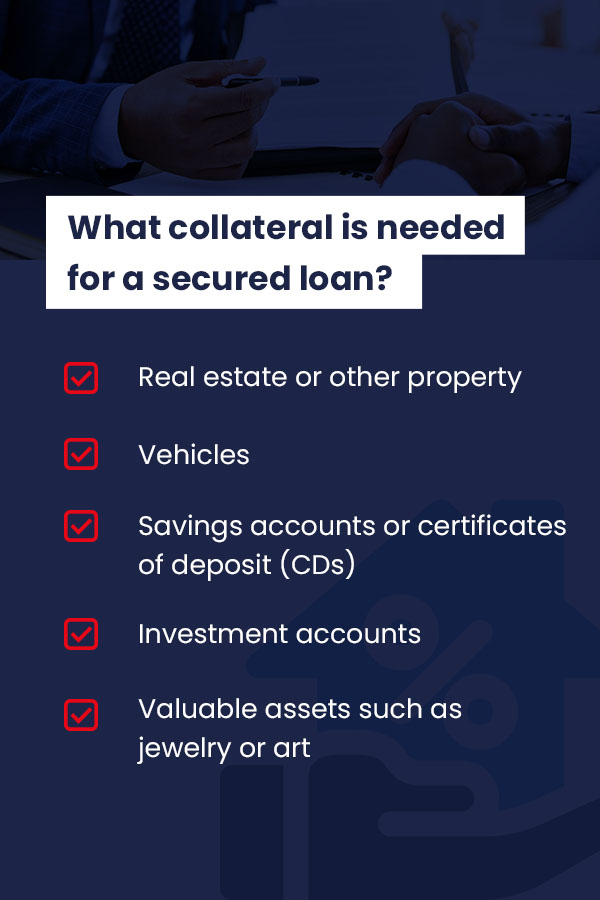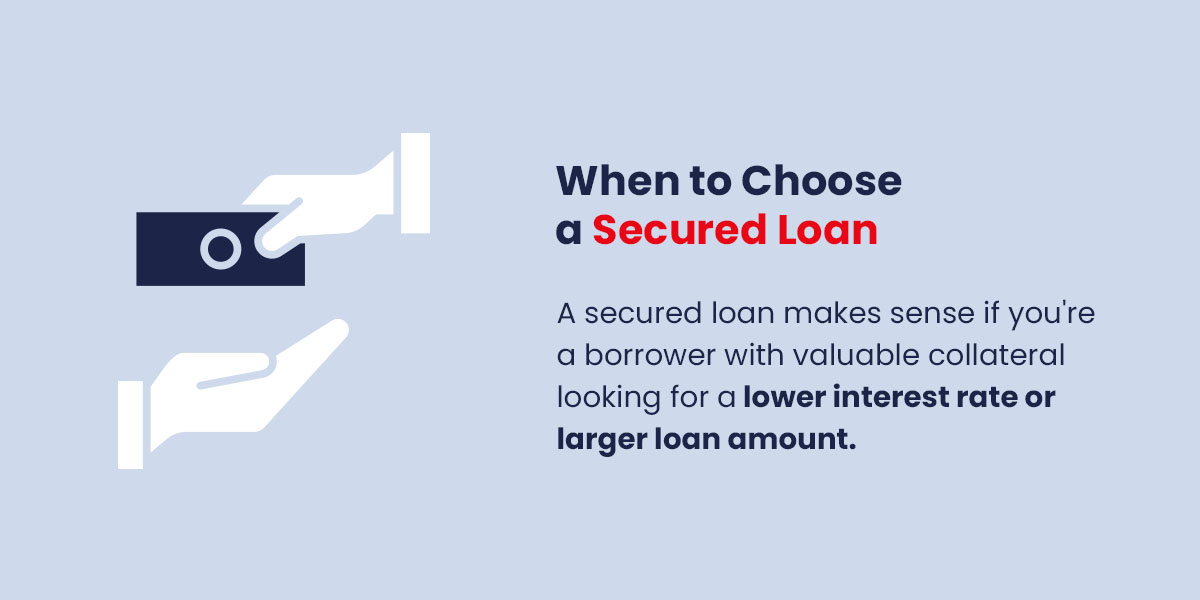
Borrowing is part of everyday financial life in the United States. Whether it's paying for a car, debt consolidation, or covering medical bills, loans bridge gaps when savings fall short. While interest rates are elevated after several years of Federal Reserve rate hikes, we're facing higher credit costs.
Choosing the right loan matters, whether you need fast funds or credit-building help. When used responsibly, loans are a helpful tool to strengthen your credit history, with every on-time payment adding positive information to your credit report. Understanding secured versus unsecured loans can change how you borrow, whether you offer up collateral or pay more for faster access to the money you need. Making an informed choice helps you better compare options and use smart strategies that fit your situation.
How Do Loans Work?
Loans are financial agreements in which you, the borrower, receive money up front and agree to repay it over time, usually with interest. They help you purchase homes, finance vehicles, cover medical expenses, or pay school tuition. Key terms include:
- Principal amount: The amount you're borrowing, specifically the original sum of money that doesn't include interest or fees, is referred to as the principal amount.
- Interest rate: The interest rate is the cost of borrowing, which can be expressed as the annual percentage rate (APR), the total annual cost of your loan.
- Loan term: Your repayment timeline, or loan term, is also called the repayment period. It can range from a few months to several decades.
- Monthly repayments: These are the regular monthly payments you make to the lender. This is how you repay the money you borrowed, with interest.
- Fees and charges: With each loan comes administrative, product, or service fees, which fall under the broader term of fees and charges.
To see if you qualify for a loan, lenders will assess your creditworthiness based on your employment stability, debt-to-income (DTI) ratio, which is ideally 35% or lower, and your credit score. The type of loan, secured or unsecured, shapes the cost and your responsibilities. To understand these categories, it helps to first look at how lenders decide whether to approve your application. So, what's the difference between secured and unsecured personal loans?
What Is a Secured Loan?
Secured personal loans can open doors if you have a small savings account. Lenders who count rental history or utilities can help borrowers without extensive credit records, building credit with responsible, timely repayment. A secured loan is backed by collateral, something of value that the lender can claim if you default. Collateral reduces the lender's risk, which typically lowers interest rates while offering higher loan amounts. It ties the loan to something tangible, creating obligations that extend beyond monthly payments.
Types of secured loans include:
- Mortgages, where the home secures the loan.
- Auto loans, where the car serves as collateral.
- Home equity loans, or home equity lines of credit (HELOC), are loans in which the borrower's property secures the loan.
- Secured credit cards help you build your credit score. Typically, you just need to deposit funds to ensure you can make the repayment.
- Business equipment loans involve taking out a secured loan for your business and offering purchased equipment as collateral.
What collateral is needed for a secured loan? Here are a few examples:

- Real estate or other property
- Vehicles
- Savings accounts or certificates of deposit (CDs)
- Investment accounts
- Valuable assets such as jewelry or art
For example, a 26-year-old individual needs $3,000 for a car repair and can offer their car as collateral. The lender gives the funds at 8% APR, with monthly payments of $93 to fit their budget. The borrower pays on time, the lender reports this to the credit bureaus, and in six months, their credit score rises by 40 points.
Advantages of Secured Loans
Secured loans offer lower interest rates. For example, by using your car as collateral, you can secure a 7% auto loan, versus 18% on an unsecured credit card. You're also more likely to be approved for larger loan amounts, accessing $50,000 with a home equity loan, for example.
Additionally, secured loans offer more leeway with respect to the impact of your credit history in the approval process. A loan applicant with a 600 credit score may be denied a personal loan, but get approved for a secured auto loan.
Disadvantages of Secured Loans
Missing mortgage payments could result in foreclosure. Despite the advantages of secured loans, your collateral is at risk. Secured loans often also require appraisals, inspections, or title checks, meaning the review and approval process takes longer. Some of these loans are tied to a purpose, restricting their use. For instance, an auto loan can't be used for medical expenses.
What Is an Unsecured Loan?
An unsecured loan doesn't allow you to pledge collateral. Rather, lenders solely examine your credit score, credit history, income, and debt-to-income ratio. Because lenders take on more risk in the absence of collateral, unsecured business loans often carry higher interest rates and stricter credit requirements.
Types of unsecured loans include:
- Personal loans
- Federally backed student loans
- Credit cards
- Personal lines of credit
- Signature loans
Unsecured loan eligibility factors include:
- A fair to good credit score, starting at 580 points
- Proof of stable income
- An acceptable debt-to-income ratio
- Verified employment history
- Additional financial stability indicators
For example, a 28-year-old earns $2,500 monthly and has a fair credit score, but needs $2,000 to cover rent for the month. They get an unsecured loan at 20% APR and receive the money within a day. That covers the rent with manageable monthly payments of $92 — this also builds on the borrower's credit.
Advantages of Unsecured Loans
Unsecured loans don't require collateral, so you can access credit without assets. Approval is also faster — typically, funding is secured in one business day. These funds are also flexible and can be used to cover anything from medical bills to wedding expenses.
Disadvantages of Unsecured Loans
Even though unsecured loans are easier to get, they come with higher interest rates. Loan amounts are also smaller, typically capped at $40,000 depending on your income and credit. To apply for an unsecured loan, you need a strong credit score and steady income.
How Do They Compare?
Unsecured loans' reliance on creditworthiness distinguishes them from secured loans. To see how these differences play out, it's essential to compare them across key dimensions, including unsecured and secured loan requirements:
Feature | Secured Loan | Unsecured Loan |
|---|---|---|
| Collateral | Required — for example, a car, savings, equipment, or property. | Not permitted. |
| Interest Rates | Lower, usually between 6% and 12% APR, as with home loans, home equity, or equipment loans. | Higher at 15% to 30% APR, as with personal loans or credit card cash advances. |
| Loan Amounts | Larger, often USD 5,000 to USD 500,000, depending on the collateral value. | Smaller, often USD 1,000 to USD 50,000, capped by creditworthiness. |
| Approval Process | More flexible. The collateral reduces the credit score weight. | Stricter and heavily reliant on credit score and income. |
| Documentation | Proof of ownership or title for collateral, identification, and income documents. | Identification, proof of income, credit history, and bank statements. |
| Processing Time | Slower, a few days to weeks, as it requires collateral appraisal and verification. | Faster, often same day or within one to three days. |
| Risk Assessment | Lender risk is lower since collateral secures repayment. | Lender risk is higher, making the terms stricter. |
| Default Consequences | The borrower may lose collateral due to nonpayment. | Borrower avoids asset loss but faces lawsuits, damaged credit, and collection calls. |
| Special Considerations | Good for borrowers with weaker credit or looking for larger or more affordable loans. | Better for emergencies, small amounts, or those unwilling to pledge assets. |
| Real-World Example | Business equipment loan at 8% APR secured by the equipment. | Personal loan at 22% APR with no collateral. |
How to Choose Between Secured and Unsecured Loans
Borrowers rarely start with abstract categories. They start with goals — buying a home, paying medical bills, or starting a business. The right loan type depends on your circumstances, risk tolerance, and financial resources. Ask yourself these questions:
- What collateral can I offer, and can I afford the risk?
- What's my credit score or credit history?
- How quickly do I need funds?
- What can I afford to pay each month?
- Do I want to build or rebuild credit?
When to Choose a Secured Loan

A secured loan makes sense if you're a borrower with valuable collateral looking for a lower interest rate or larger loan amount. It's also a good way to build credit or increase your credit score. Take out the least amount of money you need and pay the loan off quickly. Homeowners tapping equity for renovations or consolidating large debts often benefit from secured financing. Likewise, someone with weaker credit may find secured financing more attainable since the asset helps offset the lender's risk. Choose a secured loan because:
- It relates to your specific scenario.
- You want its advantages for different situations.
- You can manage the risk tolerance considerations.
When to Choose an Unsecured Loan
An unsecured loan is often the better choice when speed and flexibility matter or when collateral is lacking. Renters managing emergency expenses or consumers consolidating smaller debts may prefer this route. Strong credit profiles make approval more likely and keep interest rates manageable. Choose an unsecured loan because:
- You have appropriate use cases.
- It is beneficial for certain borrowers.
- You have timeline considerations.
How to Apply for a Secured Loan or an Unsecured Loan

Applying for a secured loan starts with choosing your collateral, that asset you're comfortable pledging. Research lenders to find one who accepts your type of collateral. Submit an application, including your personal details and collateral documents. The lender will verify ownership and assess the asset's value. If they approve, the lender offers you loan terms based on the collateral's value, your outcome, and your repayment ability.
For an unsecured loan, the process is faster because the lender doesn't need to verify any collateral. Review your credit score and report before you compare lenders. Pay attention to APR fees and repayment terms. Next, gather your documents, pay stubs, bank statements, identification, and tax returns. Submit these with the applications. The lender reviews your credit history, income, and DTI. If you get approval, you'll receive the terms and, shortly after signing, your funds.
In both cases, be sure to check for a clause on paying off your loan early without penalties. In many cases, you can pay off a loan early, but some lenders charge a prepayment penalty that covers the interest they expected to earn from you. Check the following:
- The loan contract: Look for “prepayment penalty” or “early payoff fee” wording.
- The loan type: Personal loans and credit cards often allow early payoff. However, mortgages, auto loans, and business loans may have penalties.
- State laws: Some states limit or prohibit certain prepayment penalties. If you plan to pay off your loan quickly, research your state laws.
Why Trust Us?
At Atlas Credit, we've been helping underserved communities since 1968. We offer personal loans regardless of credit scores to support your financial goals and help you improve your credit history through timely payments. Our loans range from $100 to $1,400, allowing you to focus on getting what you need without the burden of high interest.
Additionally, when you apply with us for a loan, it won't negatively affect your credit score. When we receive your application, we do a soft inquiry, which is for reference only and is non-discreet. This is a safe way for us to verify your credit history without impacting your ability to otherwise secure loans.
We believe in transparency and will inform you of every detail, including your monthly payments, due dates, and total outstanding amount. You can transact online via our website or in person at one of our storefront locations in Oklahoma and Texas.
Get Your Personal Loan From Atlas Credit
A clear, reliable loan can empower you, from emergency repairs to long-term financial health. When comparing secured or unsecured loans, consider your credit history, available collateral, and how quickly you need funds. If the risk of losing an asset is too great, opt for an unsecured loan for safer short-term relief. If you can pledge collateral responsibly, a secured loan may lower costs and help strengthen your credit profile.
Apply for a personal loan from Atlas Credit. We believe your credit history shouldn't stop you from improving your finances. We do not offer payday loans — we offer personal loans, which give you the cash you need and the flexibility to pay it back within your terms. When you apply for a loan with us, we consider other factors, such as your source of income. The online unsecured loans application is quick and easy, taking just a few minutes. We often even approve your application on the same day.
Apply for your loan today.



